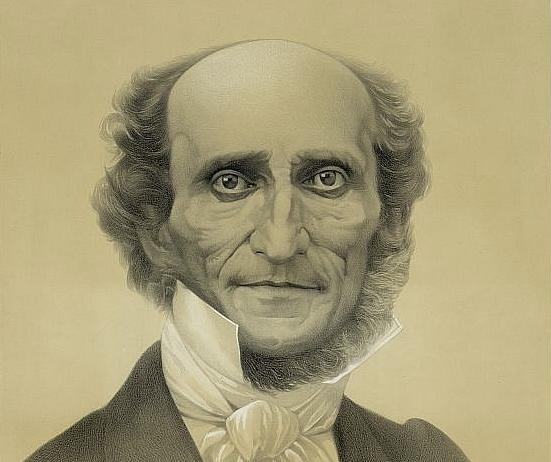
Depression is enormously common. So are other mental travails. Christians who are going through the valley of the shadow of death, as it were, should not think that these tribulations mean that there is something wrong with their faith or that God has cast them away. In fact, some of the greatest saints have gone through these dark nights of the soul; for example, Mother Teresa (a.k.a., St. Teresa of Calcutta), Martin Luther, C. F. W. Walther.
Lutheran Witness issue focuses on the theme of mental health, especially as it relates to pastoral ministry. It includes a remarkable letter from Walther, the founder and first president of the Lutheran Church Missouri Synod. LCMS President Matthew Harrison translated it, as part of his fascinating and edifying collection of the writings of the early presidents of the church body, At Home in the House of My Father.
As President Harrison explains, Walther went through a period of depression and spiritual desolation that amounted to a complete breakdown. His congregation in St. Louis, to care for their pastor (other congregations, take note), gave him a sabbatical and sent him back to his homeland in Germany to recuperate.
Read the whole letter, which is moving both for the anguish it records and for the faith that nevertheless shines through the darkness. Here are some excerpts. The letter is to his congregation, dated 3 February 1860. From Walther’s Breakdown:
I may and must now reveal to you that the last half of the previous year has been one of the most difficult times of my life. I was physically incapable of attending to even half the office that I am dignified to carry out among you in unworthy fashion. Even more, the prospect that I would again be capable of the same became gloomier and darker month by month. I owe it to you to be transparent. I was tormented night and day by the thought that through my fault in many different ways, our congregation would withdraw with quick strides from the path of the first love and simplicity.
And more than that, my own relationship with my God and Lord filled me with deep aversion and vexation. God placed before me, as never before, my entire past. He let me see my misery as I had never seen it before. I was filled with misery and distress. It appeared to me as though God had cast me away from His countenance. It seemed as though He regarded me as a rejected instrument, as if I were not a worker but a stumbling stone in His vineyard, which He must finally cast aside. It appeared to me as though God desired to take away all the blessings that He had thus far brought about through my witness to His truth, and this through a horrid end of my effectiveness.
My only hope was a blessed death. For I hoped that in spite of my deep sense that I deserved [God’s] curse, I would not let go of the Lord Jesus. I hoped to hold fast to the fact that God can never repudiate His promise to a poor sinner, if only that sinner be saved and righteous before Him through the grace of Jesus. Indeed, God more and more granted grace to me according to His faithfulness. This grace brought it about that I could never doubt the truth of that which I have taught, preached, and written for seventeen years. But the thought that I had preached others to salvation and finally would be condemned myself martyred my heart. I was vexed by countless sighs and tears in very difficult struggle with our God and Father in heaven.
But what happened? When the distress had reached its greatest intensity, help came. When I thought I would be forgotten like the dead, God finally directed His friendly countenance toward me again. I still do not know how it happened, and often doubt whether I was awake or dreaming. . . . It was the flood of words of consolation and acts of brotherly love and care that fourteen days ago began to flow over me. These kindnesses irresistibly moved my weakened heart. They compelled me to open myself to the divine consolation that the Lord has not rejected me and still recognizes me as His poor servant. He deals with me not according to my sins, nor does He desire to repay me for my misdeeds. And you, eternally faithful brothers and members of our congregation, I am filled with angst when I consider the guilt that I bear over against you. But you are the ones whose words and deeds have raised me up from the ashes in which I sat deeply afflicted.
[Keep reading. . .]
Excerpted from “Walther’s Breakdown: To the German Evangelical Lutheran Gesamtgemeinde of the Unaltered Augsburg Confession in St. Louis, 1860,” in Matthew C. Harrison, At Home in the House of My Fathers: Presidential Sermons, Essays, Letters, and Addresses from the Missouri Synod’s Great Era of Unity and Growth (St. Louis: Concordia Publishing House, 2011), pages 142–45.
Illustration: C. F. W. Walther by Heinicke-Fiegel Lith. Co. [Public domain], via Wikimedia Commons














